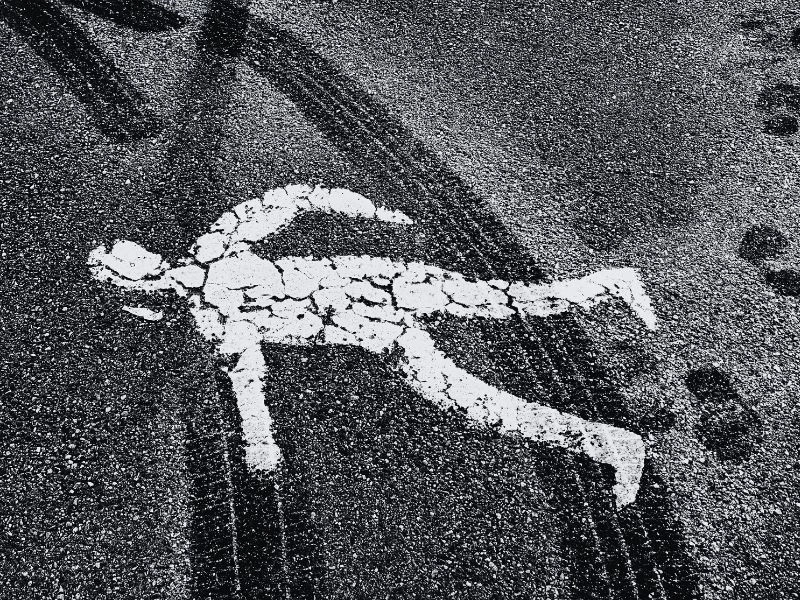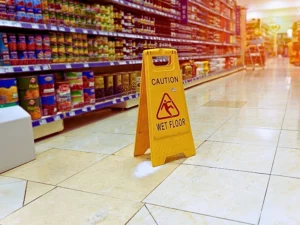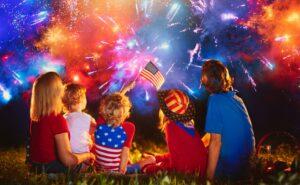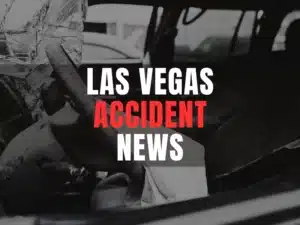A night of revelry for adults and children across Nevada, Halloween holds a darker truth: a 50% surge in pedestrian fatalities. Beyond the eerie ambiance, this fall holiday brings about an array of unique risk factors – raising the question, “Is Halloween dangerous?” Dimly lit streets, elaborate costumes, and increased foot traffic create a perfect storm for accidents. Distractions from both pedestrians and drivers further compound the danger of Halloween accidents. The combination of excitement and a potentially unfamiliar environment can lead to split-second decisions with devastating consequences.
How Pedestrians Are Impacted by Halloween Accidents
Halloween accidents can lead to various types of injuries for pedestrians. The injuries resulting from pedestrian accidents on October 31st range from minor to catastrophic or fatal. When tricks and treats lead to tragedy, it may take a physical, emotional, and financial toll on victims and their families.
Factors Contributing to the Increase in Fatalities on Halloween
Halloween is a festive occasion marked by costume-clad children and adults taking to the streets in search of treats. However, beneath the revelry lies a concerning uptick in pedestrian accidents. These increased Halloween death statistics can be attributed to several key factors, including:
Diminished Visibility
As twilight descends, the reduced visibility poses a hazard. Costumes, while imaginative, often lack reflective materials, making it challenging for drivers to spot pedestrians, especially in poorly lit areas.
Eager Trick-or-Treaters
Excitement tends to run high on Halloween night, and youngsters may dart across streets with little warning. Their exuberance can catch even the most cautious driver off guard and result in fatal crashes.
Distracted Driving
In an era dominated by smartphones, distracted driving has become an alarming concern. Halloween, with its colorful displays and unexpected movements, further compounds this problem, making it more likely for drivers to divert their attention away from the road.
Impaired Vision from Costumes
Elaborate costumes, masks, and face paint can impede a person’s peripheral vision, leading to misjudgments in traffic situations. This visual impairment, combined with the darkening evening hours, creates a hazardous cocktail for pedestrians.
Increased Pedestrian Traffic
Halloween transforms quiet neighborhoods into bustling thoroughfares, with an influx of children and families out and about. This heightened pedestrian density elevates the risk of accidents, particularly in areas with heavy vehicular traffic.
Comparison With Pedestrian Fatalities on Other Holidays
While Halloween sees an unfortunate surge in pedestrian accidents, it’s essential to contextualize these incidents in relation to other holidays. While the incidence of fatal accidents on Halloween is concerning, other holidays also present significant challenges in terms of pedestrian safety.
Some of the most dangerous days for pedestrians include:
New Year’s Eve and Day
Unsurprisingly, New Year’s Eve and Day exhibit some of the highest rates of pedestrian accidents. Festive celebrations, often coupled with alcohol consumption, contribute to a heightened risk for pedestrians. Unlike Halloween, where the focus is on children, New Year’s incidents involve a broader demographic.
Independence Day
The Fourth of July, known for fireworks and festivities, experiences an increase in pedestrian accidents, largely due to crowded public events and late-night celebrations. Fireworks displays, combined with alcohol consumption, create a hazardous environment for both drivers and pedestrians.
Thanksgiving
Thanksgiving, a time for family gatherings, also witnesses a rise in pedestrian accidents. Increased travel and congestion on roadways can lead to a higher incidence of accidents, particularly in areas with heavy foot traffic.
Christmas
The holiday season, spanning from Christmas through New Year’s, sees a notable uptick in pedestrian accidents. Similar to Halloween, the combination of diminished daylight, festive decorations, and increased pedestrian traffic contributes to the heightened risk.
Potential Dangers on Halloween in Nevada
Amidst the festivities of Halloween, there are potential dangers that can pose serious risks to pedestrians, especially in bustling cities like Las Vegas, Nevada. Understanding these hazards is crucial for safeguarding oneself and loved ones during this spirited occasion.
Street Safety Concerns
In the heart of Las Vegas, where the vibrant nightlife never sleeps, Halloween ushers in a unique set of challenges for pedestrians. The streets, typically teeming with revelers, take on an added intensity as partygoers spill out of clubs and casinos, their attention fixated on the surrounding revelry. As a result, heightened pedestrian traffic converges with the regular flow of vehicles, creating a potentially perilous situation.
Las Vegas’s famed neon lights, while iconic, can sometimes hinder visibility for both drivers and pedestrians. On Halloween, this issue is exacerbated by elaborate costumes and accessories, which may obstruct the wearer’s line of sight or make them less conspicuous to motorists.
Celebratory libations can impair judgment, leading to risky behavior on the part of both pedestrians and drivers. The increased likelihood of encountering impaired individuals on the streets elevates the risk factor.
Trick-or-Treating Hazards for Children
For families in residential neighborhoods, the tradition of trick or treating is a cherished one. However, it is not without its share of potential dangers. Parents and guardians must be acutely aware of the risks their little ones face while partaking in this beloved pastime.
Uneven Sidewalks and Walkways
Las Vegas, like many cities, boasts its fair share of older neighborhoods with uneven sidewalks and walkways. In the low light of dusk and evening, these imperfections can easily lead to trips and falls, posing a risk to eager trick-or-treaters.
Unfamiliar Terrain
In some neighborhoods, especially those frequented less often, children may find themselves in unfamiliar territory. This can lead to confusion about which houses are participating in the festivities and which are not, potentially exposing them to undue risk.
Traffic Congestion and Limited Crosswalks
A significant concern on Halloween in Las Vegas is the increased traffic congestion, exacerbated by both pedestrians and vehicles vying for space on the streets. Limited crosswalks in certain areas can lead to dangerous situations, as pedestrians may attempt to cross busy roads without proper visibility or right-of-way.
Measures to Reduce Halloween-Related Pedestrian Fatalities
A safe Halloween requires a collaborative effort between law enforcement, responsible adults, and community members. By taking proactive steps and spreading awareness, it may allow you and others to enjoy the holiday, while avoiding falling victim to pedestrian accidents that turn a night of celebration into one of mourning.
Increased Law Enforcement Efforts
One crucial measure in ensuring a safe Halloween is the bolstering of law enforcement efforts. To this end, departments may take actions, such as deploying more officers in neighborhoods known for high trick-or-treating activity. Their presence serves as a powerful deterrent to reckless driving and promotes a sense of security among pedestrians.
These officers play a vital role in enforcing traffic rules and ensuring that drivers are adhering to speed limits, especially in residential areas where children are more likely to be present. Additionally, they can be instrumental in identifying and addressing any potential safety hazards, such as poorly lit intersections or areas with limited visibility.
Adult Responsibility in Ensuring Safety
Another essential aspect of Halloween safety lies in the hands of responsible adults. Parents, guardians, and community members must take an active role in ensuring the safety of young trick-or-treaters. Adult responsibility starts with setting clear guidelines and expectations for the evening.
Adults should accompany young children while they are out trick-or-treating, providing an extra layer of supervision and guidance. It’s imperative that adults emphasize the importance of staying on sidewalks, using designated crosswalks, and looking both ways before crossing streets. Moreover, they should encourage the use of reflective clothing or accessories to enhance visibility.
Furthermore, responsible adults can organize community watch groups to patrol neighborhoods during Halloween festivities. A collective effort not only provides an added layer of security, but also fosters a strong sense of unity within the community.
Educational Campaigns: Spreading Awareness
Raising awareness about Halloween safety is a powerful tool in preventing pedestrian-related accidents. Community leaders, schools, and local law enforcement agencies can collaborate to implement educational campaigns leading up to Halloween night.
These campaigns can take various forms, including workshops, seminars, and informative pamphlets distributed to households. They should focus on educating both children and adults about the importance of safe pedestrian behavior. For instance, this includes teaching children to make eye contact with drivers before crossing streets, to avoid distractions like smartphones, and to stay in well-lit areas.
For adults, the campaign can emphasize the significance of responsible supervision and being vigilant while driving through neighborhoods on Halloween night. By disseminating this critical information, communities can equip individuals with the knowledge and skills needed to make informed decisions that prioritize safety.
Recovering Compensation for Pedestrian Deaths in Nevada
If you lost a loved one in a pedestrian accident on Halloween, you may have the right to file a wrongful death claim for damages. The aftermath of such a tragic event can be overwhelming, and seeking compensation might not be the first thing on your mind. However, reviewing the process with a pedestrians accidents lawyer may provide some clarity and help alleviate the financial burdens that often accompany such a loss.
Proving Liability
To successfully recover compensation for a fatal pedestrian accident in Nevada, plaintiffs need to establish liability. This involves demonstrating that the responsible party acted negligently, ultimately leading to the accident. Here’s how you can go about it:
Establishing Negligence
The cornerstone of any successful wrongful death claim is proving that the party at fault failed to exercise reasonable care. Further, you must prove this failure directly contributed to the accident, and thus, the resulting injuries and damages.
Gathering Compelling Evidence
Building a strong case requires meticulous gathering of evidence. Among the evidence you should collect and maintain in case you choose to file a fatal pedestrian accident lawsuit is accident reports, witness statements, photographs, and any other relevant documentation. Concrete evidence bolsters your case significantly.
Expert Testimony for Clarity
In some instances, expert witnesses can offer invaluable insights. Accident reconstruction specialists or medical professionals can shed light on the specifics of the accident, providing a clearer picture of what transpired.
Understanding Comparative Negligence
Nevada employs a comparative negligence system. As such, even if the deceased bore some responsibility, you may still be eligible for compensation. However, the awarded amount could be reduced in proportion to their level of fault.
Types of Damages
When seeking compensation for a fatal pedestrian accident, it’s essential to consider the various types of damages that can be pursued. These include:
Economic Damages
Economic damages encompass quantifiable financial losses such as medical expenses, funeral costs, and loss of financial support. Maintaining meticulous records of all expenses related to the accident is crucial. For example, you will need to have bills and invoices for medical care received as a result of the injury before the death, employment earnings statements, and bills for the funeral expenses.
Non-Economic Damages
Non-economic damages refer to losses that are more subjective, such as pain, suffering, and the emotional toll of the loss. In some cases, a multiplier method is used to determine compensation amounts. This involves multiplying the economic damages by a certain factor (usually between 1.5 and 5) to arrive at a suitable non-economic damages figure.
Punitive Damages
In cases of extreme negligence or intentional misconduct, punitive damages may be awarded. These serve to both punish the responsible party and deter future similar behavior. Nevada may impose limits on the amount of punitive damages that can be awarded, typically capped at a specific multiple of the compensatory damages.
Consulting with an experienced attorney well-versed in Nevada’s laws is essential. He or she can guide you through the process, helping you answer the question, “Is Halloween dangerous?” and ensuring you navigate the complexities to receive the compensation you rightfully deserve. While no amount of compensation can replace your loved one, it can provide a measure of financial stability during this challenging time.





